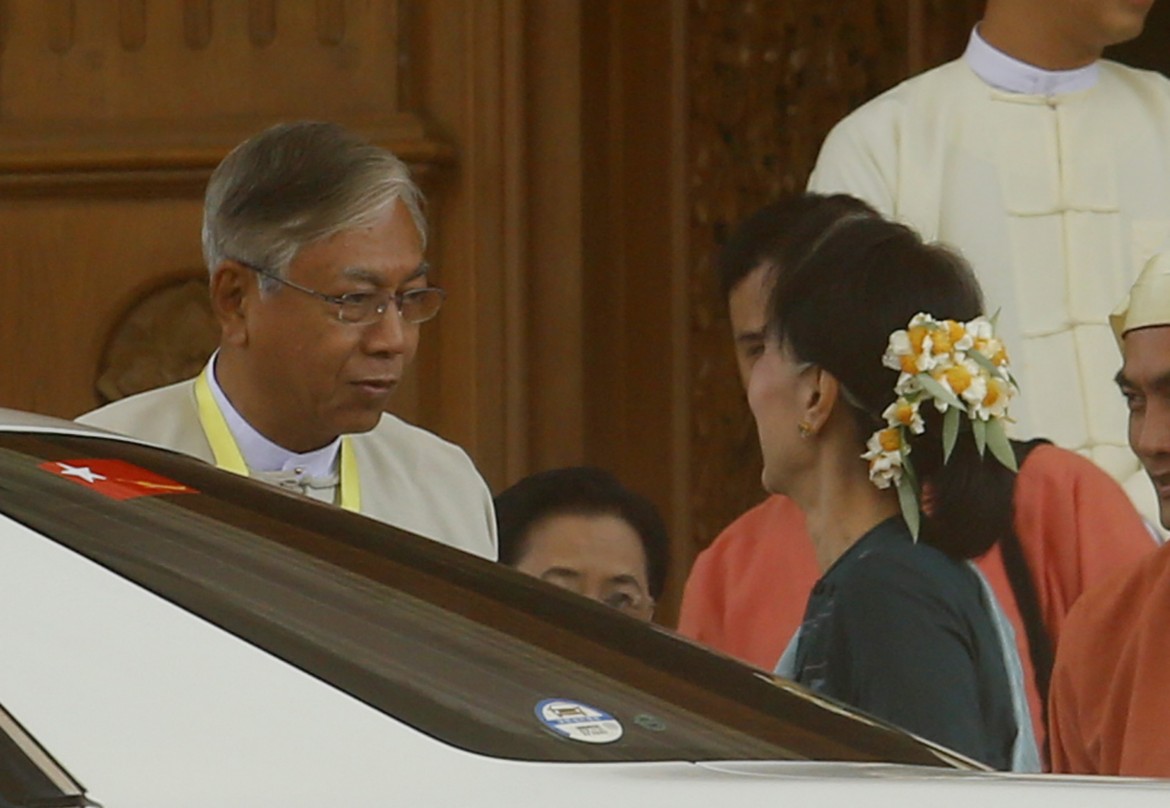Myanmar
Suu Kyi role unresolved in Myanmar’s civilian transition
The country marked a milestone installing a civilian in the presidency, but the military still holds power and Aung San Suu Kyi’s job title is still in question.

After more than 50 years of military rule, on April 1 a president in civilian clothes will be sworn in to the highest office in Myanmar. His name is Htin Kyaw, he is 70 years old and he enjoys the respect of many Burmese — and, setting him apart, the full confidence of Aung San Suu Kyi. She is the real winner of a political drama that has dragged on for years, with the government placing her under house arrest for more than a decade and persecuting the men and women of her party, the National League for Democracy, or NLD.
The gestation of last year’s election has been long and difficult. It began in November when the NLD won a landslide in the parliamentary elections, which, for the most part, were transparent and legal, without fraud or (significant) intimidation. With a majority in parliament, the NLD can therefore afford to be more brazen. They don’t need to fear quite as much the presence of the military, which still holds a guaranteed 25 percent of seats and, therefore, indirect veto power on any constitutional amendments; the constitution can only be changed with more than 75% of the parliamentary vote.
After the victory, Suu Kyi led a long negotiation with the military and minority party to figure out how, legally, she will be able to govern. She cannot be president because of Article 59 of the military’s constitution of 2008, written for her, which bars anyone married a foreigner or has children with foreign passports. Suu Kyi’s late husband is British, and their two sons have British passports.
If her Nobel Peace Prize paved the way for her to govern behind the scenes, now she is paving her own road to the prime minister’s chair, a position that does not exist in Myanmar yet. The premiership would allow her to govern in the open, travel abroad to meet foreign leaders, make decisions and pull the executive levers that, for now, are the exclusive prerogative of the president.
But this won’t be easy: The key ministries are now in the hands of the military, and they have a soldier in the vice presidency. Htin Kyaw, an Oxford graduate and scholar, secured more than half the votes needed from both houses of parliament. But next to him, as first vice president, is a man sponsored by the military: Myint Swe. He’s a good friend of outgoing President Than Shwe, and thus a man faithful to his uniform. It is also said that he is a hawk. In addition, there is a “second vice president,” another NLD man: Henry Van Thio, a member of the Chin ethnic minority.
It was not a path paved with roses. Candidacy applications must pass the analysis of a committee composed of seven members, six of whom represent the Upper and Lower Houses, plus a member of the military. The latter, General Than Soe, had much to say on both Htin Kyaw and Van Thio. The first is not a member of parliament, and the second has spent a long time abroad.
But Myint Swe also had a significant problem: His son held an Australian passport and had to give up that nationality to ensure his father could access to the vice president seat. That detail, described by the Irrawaddy website (an opposition publication produced by Burmese exiles in Thailand), suggests the possibility that Suu Kyi could negotiate her way to the presidency.
The ad hoc law that has prevented her so far could be overcome, either through a constitutional amendment or circumvented by some classic ploy of institutional alchemy. Or more simply, the establishment of a premiership would simplify things, preventing an unnecessary tussle between military and civilian leaders.
The battle seems to be moving onto other fronts regarding the conservation of power and privilege, standard controversies for countries in transition. The military still controls defense and the economy, and the soldiers have their hands in the business sectors and in the mines. A third group of players are the warlords from minority ethnic groups of the north. The way forward for Myanmar is less uphill, but is not yet downhill.
Originally published at http://ilmanifesto.info/myanmar-primo-presidente-civile-dopo-50-anni/ on 2016-03-16
